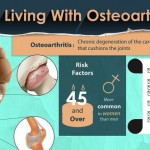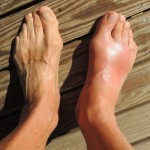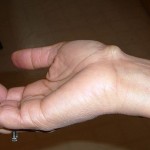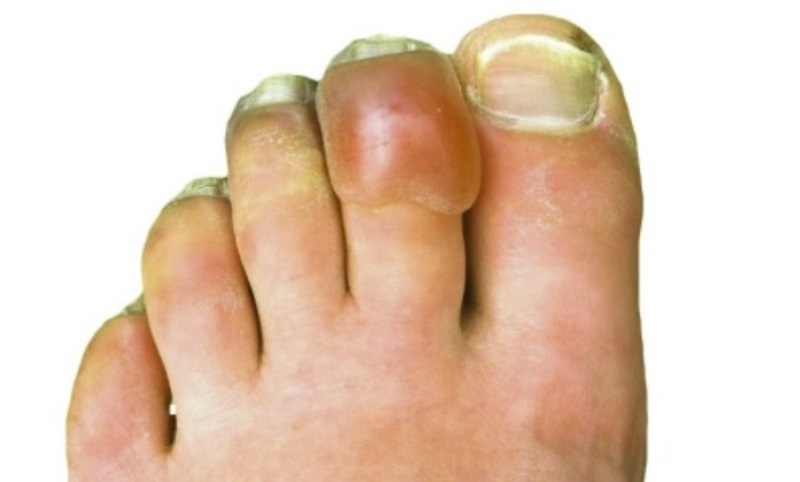What is PCOS aka Polycystic Ovary Syndrome?

Image source: thesage
PCOS or polycystic Ovary Syndrome is a common endocrine disorder among women of reproductive age that cause the ovaries to enlarge owing to multiple cyst-formations. While the cysts aren’t harmful per se (they are, though, in rare cases), they can collect inordinate amounts of fluid inside, enlarge with time and cause severe repercussions. The most common effects of PCOS involve hormonal imbalances, infrequent, delayed or prolonged periods, excess hair growth, acne, fertility issues, depression or even obesity. If left untreated, it can cause serious health disorders such as type 2 diabetes or heart disease.
Suggested read: 12 amazingly effective home remedies for skin rashes
Causes and symptoms
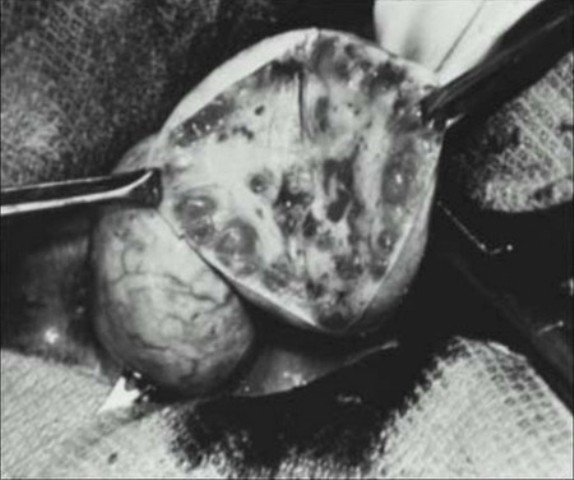
Image source: womens-health-advice
While the exact cause of PCOS is unknown, the symptoms involve hormonal imbalances that trigger evident changes in the body. For instance, the sex hormones go out of balance with the level of androgens shooting higher than normal. This may cause ovulation cessation, acne and development of excess facial and body hair. The body may also develop insulin resistance, thereby upping one’s risk of diabetes.
Treatment
While PCOS can be treated medically, there is always the added risk of potential side effects. These can be ousted by the use of home remedies for PCOS. However, it is advisable to opt for these home remedies for PCOS only after checking in with your healthcare professional, especially so if you are on medication to treat PCOS. :
A healthy, balanced low glycemic diet

Image source: Pixabay, under Creative Commons License
Avoiding binge-eating, especially on caffeinated, fried, fatty, canned, preserved or sugary foods. Opt for a balanced diet rich in whole grain, veggies, fruits and dairy products to furnish your body with the nutrients it needs for a speedy recovery. Eating a low glycemic diet ensures that there are no sudden spikes in blood sugar levels which could aggravate the problem. Adding protein sources such as eggs, fish, legumes, milk products and soy can provide relief from the symptoms and mitigate the chances of recurrence. Keeping oneself hydrated can help flush out toxins, harmful free radicals and other adverse elements that can cause hormonal imbalances in the body.
Adding Omega 3 fatty acid sources to lower the androgen levels in your body is always a good idea in PCOS. You can ingest supplements or opt for foods like fish oils, salmon, almonds, walnut, flax seeds, halibut and soy. While those on medication would be ingesting inositol as supplements, you can also add them to your diet naturally with brown rice, nuts, wheatgerm, brewer’s yeast, cabbage and oats. Soy isoflavones can help tackle anovulation or irregular ovulation. Soy nuts, miso and soya beans contain the isoflavones that work in exactly the same way as the drug Clomid to regulate menstrual cycles. Diindolymethane or DIM is found in cruciferous vegetables such as broccoli, cauliflower and cabbage and helps to reduce the testosterone levels in women. This would curb male dominant features and regulate estrogen balance.
Suggested read: Suffering from horrible menstrual cramps? Get relief with these home remedies
Kitchen counter remedies
- Cinnamon– One of the most effective home remedies for PCOS, cinnamon helps normalize the menstrual cycle and prevents sudden hunger pangs owing to a high fiber content. You could add cinnamon to your dishes, sprinkle some on snacks and drinks or simply, eat a tablespoon after each meal for best results.
- Apple cider vinegar– Apple cider vinegar helps to lower insulin resistance and improve insulin sensitivity. Consuming two teaspoons before your meals or staring out with a lower dose and subsequently, increasing the dose can help you notice considerable improvement and the symptoms of PCOS receding.
- Flaxseed– Flaxseed contain lignans that stimulate the production of SHBG or the sex binding hormone globulin that aids in binding testosterone in the blood, thereby, preventing it from creating imbalances. Not only does it bring down the androgen level but also helps in regulating blood sugar and cholesterol levels. Adding ground flaxseed to your meal preparations or mixing freshly ground ones in a glass of water for daily consumption can show effective results.
- Spearmint tea– Owing to its anti-androgenic properties, spearmint tea can help reduce hirsutism or the production of excess body hair by bringing down the testosterone levels in the bloodstream and increasing the luteinizing and follicle stimulating hormone levels. Boiling spearmint leaves in a pan of water until it simmers and straining the concoction to consume it whilst warm is the best way to derive optimal benefits.
- Fenugreek– Fenugreek is helpful in promoting glucose metabolism and improving insulin resistance. As such, it aids in maintaining hormonal balance, lowering cholesterol levels and aiding weight loss. Fenukgreek seeds or leaves can be added to meal preparations. However, for maximum benefit, it is recommended that the seeds be soaked in water for 6-7 hours before a teaspoon of the soaked seeds is mixed with honey to be consumed in the morning, on an empty stomach. The process should be accompanied by ingesting one teaspoon each before lunch and dinner daily to see improvement.
- Saw palmetto– This anti-androgen herb helps to lower androgen levels and blocks 5-alpha-reductase activity, thereby bringing down the conversion of testosterone into a more active DHT or dihydrotestosterone. This can effectively check hirutism and in some cases, may also help thinning hair grow back. Naturopathy recommends the herb owing to its heightened ability to correct hormonal imbalances. You can use an extract for daily consumption.
- Chasteberry– Also known as vitex, this herb helps to maintain hormonal balance and can be either consumed in supplement form or used as a concoction in warm water.
- Licorice– Licorice root contains glycyrrhizin that inhibits the production of an enzyme instrumental in testosterone production. Therefore, not only does licorice help in bringing down serum testosterone but also acts as an adjuvant therapy for hirutism. Licorice rot also promotes ovulation and helps in liver detoxification. The detoxification further enables flushing out toxins and excess hormones, thereby bolstering hormonal balance. You could either cpnsume licorice root in supplement form or boil dried root in water, simmer, strain and drink the tea twice-thrice daily for best results. Licorice root may not be suitable for those suffering from high blood ptressure, lung, heart or liver ailments.
Lifestyle remedies

Image source: Pinterest
Exercise helps lower blood sugar levels. If you have PCOS, you should consider ditching a sedentary lifestyle in favor of an active one that deploys an optimal workout regimen to keep your weight in case. An excess body mass index or BMI can tend toward an unhealthy weight and once you tip off the scales toward obese or overweight, you stand a higher chance of contracting conditions like hypertension, diabetes or high cholesterol- all of which can cause PCOS or aggravate an existing condition. Losing weight can ward off the symptoms by keeping the androgen levels in check. It can also curb infertility and regular moderate exercise cycles can improve insulin sensitivity, regulate menstruation and help combat PCOS.
Suggested read: All you need to know about dehydration and how to treat it with home remedies
Of course, quitting smoking and alcohol is a must. Restricting the intake of caffeine and bidding adieu to drugs and substance abuse are mandatory as well. Limit lifestyle-related triggers and see the changes begin to show.
We wish you a speedy recovery!
Featured image source: thesage




